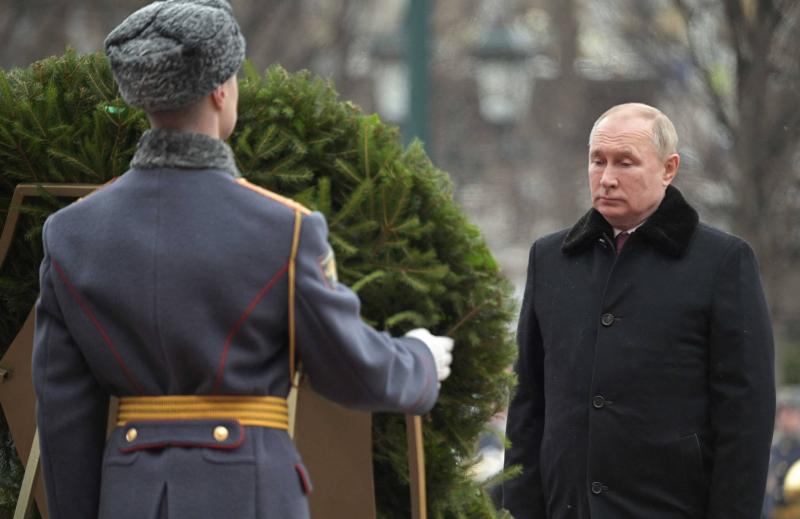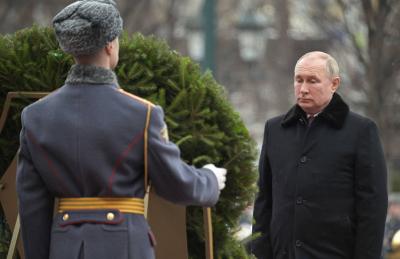At the onset of the Russian war in Ukraine, it was clear that Russian President Vladimir Putin possessed several advantages enabling him to manage the battle according to his cold strategy. The element of time, combined with human, geographic, and the strong Russian economy, were all factors that Putin leveraged in his war to deter NATO's expansion into his strategic space. Consequently, this policy, according to writer Hassan Merhej, forced the West, in general, to provide further support for Ukraine to prevent Russia from achieving its objectives and to coerce it into sitting at the negotiation table.
Amid the Russian-Ukrainian war, another battle erupted in the Middle East that diverted Western focus away from Ukraine. The Gaza war, in its timing and circumstances, became an opportunity for Russia and a window to regain moral superiority, infiltrate the Global South, alter its relationships with Middle Eastern countries, and most importantly, Russia's ability to approach the emerging realities in Ukraine and Gaza from another perspective.
Putin and his political and media supporters have repeatedly compared the way the United States responded to the invasion of Ukraine with threats and sanctions against Russia to how it reacted to Israeli attacks on Gaza. This hypocrisy aligns with the Russian narrative that reinforces the capacity of great powers to follow their own methods without the rules applying to them. Russians wonder why rules should apply to a great power like theirs when it feels threatened by Ukraine.
On its part, Russia does not display direct support for Israel based on various aspects, most prominently the depth of interests with Israel. This was evident through statements by Russian Foreign Minister Sergei Lavrov, who confirmed that what Russia is doing in Ukraine parallels Israel's actions in Gaza concerning "eliminating Nazism and neutralizing terrorism." In his diplomatic statements, Lavrov aimed to embarrass the United States and the West in general, but was perhaps unsuccessful in that, as political language may have failed him in describing the approach, or it could have been Lavrov's attempt to restore Russia's high moral and political standing.
Previously, Russia attempted to support Gaza through a political project at the Security Council to force Israel to cease fire, but it faced diplomatic failure when it presented this project to the United Nations ten days after the outbreak of the war in Gaza, when the course was already moving toward a ceasefire. However, the failure was partial, and passing the resolution was not possible, but support from China and Russia for it, in contrast to the anticipated rejection from the United States, the United Kingdom, and France, sent a message to public opinion in the Global South that understood the global organization was biased against their interests.
For years, Russia has tried to maintain practical relations with Israel and also aimed to play a mediating role through its presence in Syria, which enabled Israel to bomb sites within the country according to foreign reports, while granting Iran space to maneuver as well. However, distancing from Israel from the Russian perspective means the possibility of enjoying political support from across the Islamic world, complicating matters for Arab countries and Turkey to overtly support Ukraine. Volodymyr Zelensky will not be welcomed at the Arab League summit next year following his explicit support for Israel and silence regarding the destruction in Gaza. This choice might be a miscalculation by the Ukrainian president, but Moscow is likely to benefit from it.
The war in Gaza came at a suitable time for Putin, opening the way for Russia to once again penetrate the politics of the Middle East, which witnesses unconditional Western support for Israel, and both parties had been operating cautiously in Syria long before the Ukrainian invasion. It can be said that the Gaza war provided an opportunity for Russia's relations with Middle Eastern countries to transcend the impacts of the war in Ukraine.
Ultimately, Moscow and its cold policies are trying to reconcile the wars in Ukraine and Gaza according to its strategic perspective, while emphasizing the hypocrisy of the West in dealing with both wars. Will Russian policy bear fruit? This is what the coming days will reveal, which will witness a realignment of great powers following the Gaza war.




